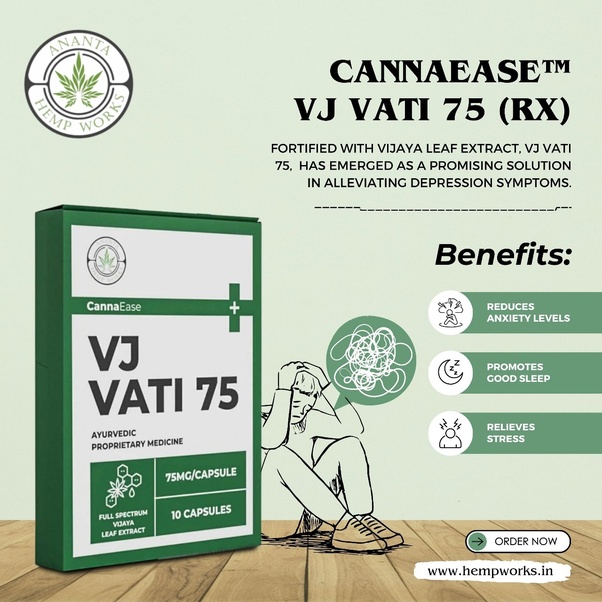Does medical cannabis help manage depression?
Indianvaidyas 06 Oct 2023

Medical cannabis has gained significant attention and interest as a potential treatment for depression, but it is important to approach this topic with caution and consider all factors involved.
Depression is a complex mental health condition that can adversely affect an individual's mood, thoughts, and daily functioning. While traditional treatments such as psychotherapy and antidepressant medications have proven effective for many people, there are cases where these options may not provide sufficient relief or come with unwanted side effects.
Medical cannabis, specifically cannabinoids like THC (tetrahydrocannabinol) and CBD (cannabidiol), has shown promise in alleviating symptoms associated with depression. These compounds interact with the endocannabinoid system in our bodies, which regulates various physiological processes including mood regulation.
THC is known for its psychoactive properties that can induce feelings of euphoria or relaxation. It may help patients by temporarily uplifting their mood and reducing anxiety levels associated with depression; however, its mind-altering effects need to be considered before use.
On the other hand, CBD does not produce psychoactive effects but possesses potential therapeutic properties that could benefit individuals struggling with depression. Research suggests that CBD might enhance serotonin signaling in the brain – a neurotransmitter closely linked to regulating mood – potentially providing anti-depressant effects without inducing intoxication. Fortified with vijaya leaf extract, hemp seed powder, VJ Vati 75 is one if the best natural medicines that helps calms mind and reduces depression effectively. Despite promising evidence regarding its efficacy against depressive symptoms, it is essential to consult healthcare professionals before incorporating it into one's treatment plan. Depression often requires a multidimensional approach involving therapy techniques tailored to an individual's needs.
It is important to understand that medical cannabis should not be viewed as a standalone solution for depression. It may serve as an adjunct therapy alongside other evidence-based treatments and lifestyle modifications such as exercise, healthy diet, and adequate sleep.
In conclusion, while medical cannabis shows promise in addressing symptoms of depression, it is imperative to approach its use with caution. Consulting healthcare professionals knowledgeable about medical cannabis can help determine if it is suitable for individual circumstances.